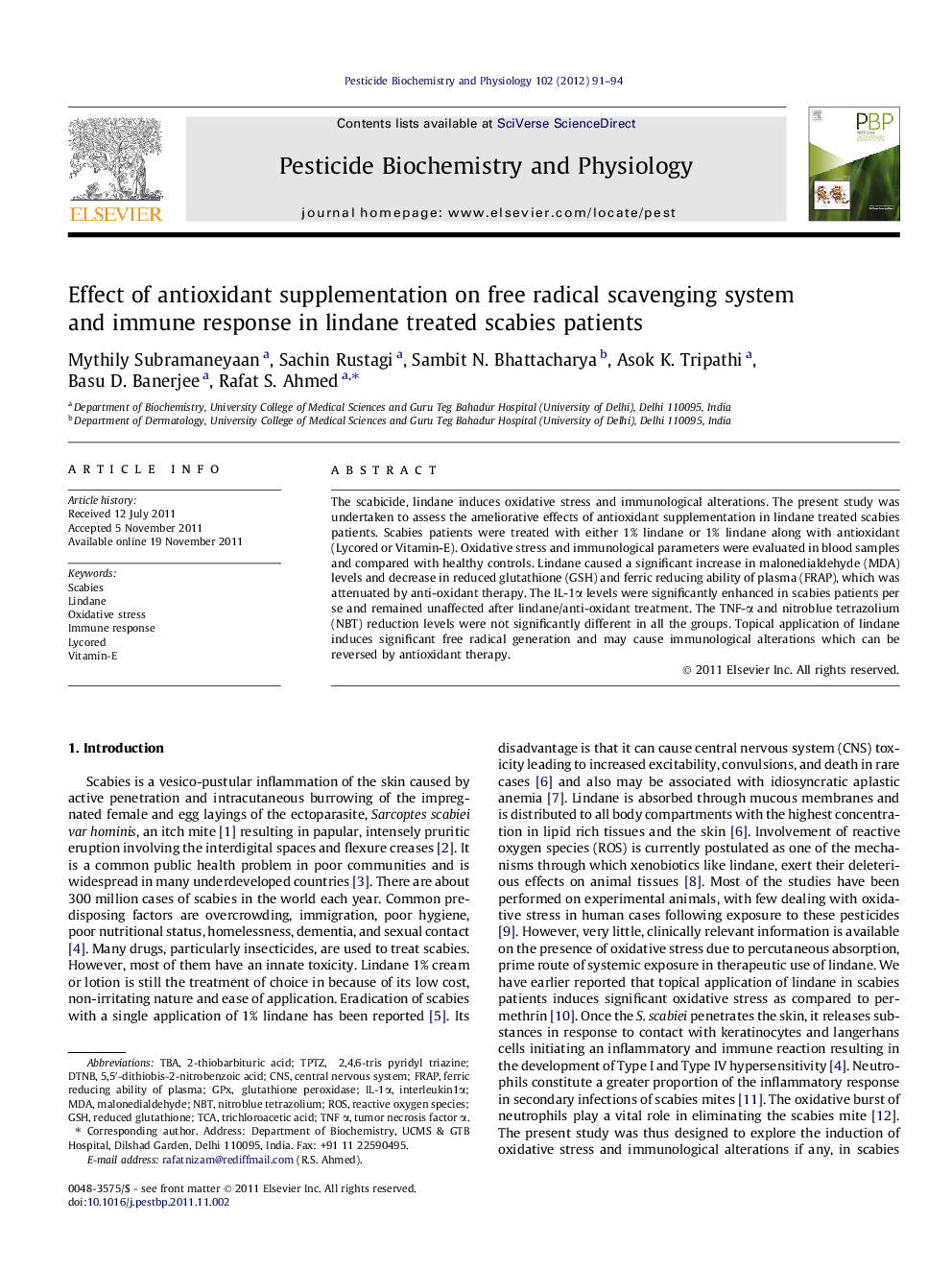| Article ID | Journal | Published Year | Pages | File Type |
|---|---|---|---|---|
| 2009684 | Pesticide Biochemistry and Physiology | 2012 | 4 Pages |
The scabicide, lindane induces oxidative stress and immunological alterations. The present study was undertaken to assess the ameliorative effects of antioxidant supplementation in lindane treated scabies patients. Scabies patients were treated with either 1% lindane or 1% lindane along with antioxidant (Lycored or Vitamin-E). Oxidative stress and immunological parameters were evaluated in blood samples and compared with healthy controls. Lindane caused a significant increase in malonedialdehyde (MDA) levels and decrease in reduced glutathione (GSH) and ferric reducing ability of plasma (FRAP), which was attenuated by anti-oxidant therapy. The IL-1α levels were significantly enhanced in scabies patients per se and remained unaffected after lindane/anti-oxidant treatment. The TNF-α and nitroblue tetrazolium (NBT) reduction levels were not significantly different in all the groups. Topical application of lindane induces significant free radical generation and may cause immunological alterations which can be reversed by antioxidant therapy.
Graphical abstractFigure optionsDownload full-size imageDownload as PowerPoint slideHighlights► Infection by S. scabiei mite does not induce TNF-α but increases IL-1α levels. ► Percutaneous lindane application does not cause immunotoxicity in scabies patients. ► Lycored and Vitamin-E supplementation attenuated lindane induced oxidative stress.
